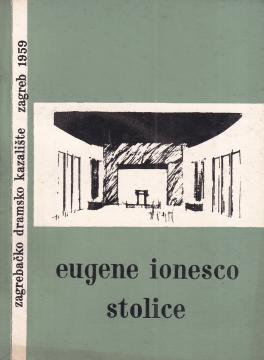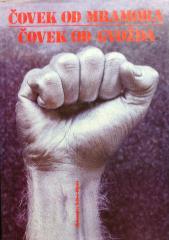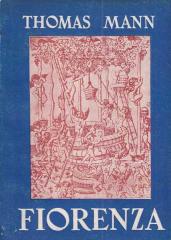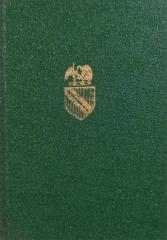
Stolice
"Chairs" is a one-act play by Eugène Ionesco, one of the most significant representatives of the theater of the absurd, premiered in 1952. This edition was printed on the occasion of the play's premiere at the Zagreb Drama Theater in 1958.
The drama depicts the meaninglessness of human existence through the symbolism of emptiness and communicative impotence. The action of the play is set in an isolated, dilapidated room on a deserted island, where an old married couple — the Old Man and the Old Woman — are spending their last moments of life. The old man, ninety-five years old, has an important message that he wants to convey to humanity, and the Old Woman supports him in his intention. They expect the arrival of guests to the gathering they organized so that the Old Man could present his philosophical idea about the meaning of life.
As the guests "arrive", the Old Woman brings in more and more chairs, but the attendees remain invisible, which creates a surreal and grotesque atmosphere. Chairs pile up, filling the space, as the Old Man and Old Woman talk to them as if they were real. Finally comes the Speaker, a professional orator, whose task it is to convey the Old Man's message.
However, after the Old Man and Old Woman jump into the sea convinced that they have accomplished their mission, the Speaker is revealed to be mute and unable to say anything meaningful. The message remains unsaid, and the audience is left faced with absurdity and emptiness.
"Chairs" symbolize the emptiness of human communication and the search for meaning in a world of absurdity. Invisible guests represent the illusion of social relations and self-deception. The speaker's inability to convey a message indicates the barrenness of human existence and the failure to convey important ideas.
The drama explores existential loneliness and the illusory nature of communication, while empty chairs become symbols of unfulfilled expectations and lost human connections.
One copy is available





